
 E-mail:
voyage@voyagehndr.com
E-mail:
voyage@voyagehndr.com

BLOG
Top 7 Automatic Rebar Tying Machines for Effortless Construction in 2023
As the construction industry continues to evolve, the demand for efficient and innovative tools has grown exponentially. The Automatic Rebar Tying Machine has emerged as a game changer, streamlining the process of tying rebar and significantly reducing labor costs. According to a report by Research and Markets, the global construction equipment market is expected to reach $192.4 billion by 2025, with automated machinery playing a pivotal role in this growth. By automating the rebar tying process, construction companies can enhance productivity, decrease reliance on manual labor, and improve overall project timelines.
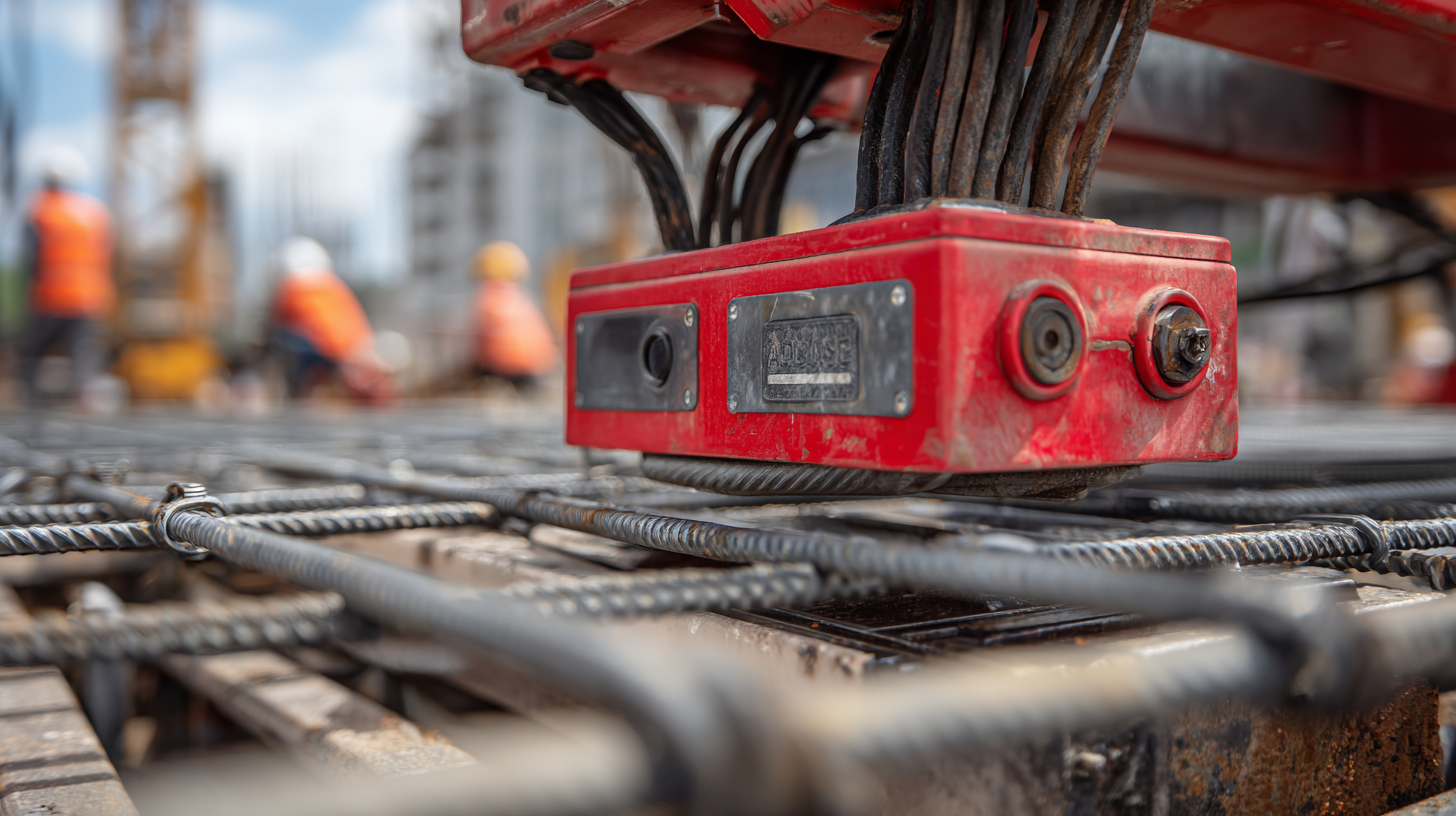
In 2023, advancements in technology have led to the development of sophisticated Automatic Rebar Tying Machines designed for effortless operation. These machines not only boost efficiency but also ensure precision in rebar installation, which is critical for structural integrity. A study by Freedonia Group indicates that the demand for rebar tying tools is expected to rise as the construction sector increasingly adopts automation. This further underlines the importance of investing in high-quality automatic tying machines that can perform consistently in various working conditions. As we explore the top contenders for 2025, it is evident that the right equipment can make all the difference in achieving successful construction outcomes.
The Rise of Automatic Rebar Tying Machines in Modern Construction
The rise of automatic rebar tying machines marks a significant shift in modern construction practices. With the increasing complexity of building projects, these machines are becoming vital tools that enhance both efficiency and safety on construction sites. By automating the tying process, these machines reduce manual labor, leading to faster project completion times and a decrease in the risk of worker injuries. As construction demands evolve, so does the technology that supports it, with automation playing a pivotal role in meeting these new challenges.
In the broader context of the construction industry, various innovations and trends are emerging that further align with the adoption of automatic equipment. From building information modeling (BIM) to robotics, the integration of advanced technologies is streamlining workflows and enhancing productivity. The collaboration between companies to develop robotic solutions indicates a collective move toward embracing automation as a means to not only improve efficiency but also to ensure sustainability in construction practices. As these trends continue to develop, the industry is poised for significant transformation, where automated solutions like rebar tying machines are at the forefront, driving the future of construction.
Key Features to Look for in 2023's Best Rebar Tying Machines
When selecting an automatic rebar tying machine in 2023, certain key features are crucial to ensure you make the right choice for your construction needs. First and foremost, look for machines that offer adjustable tying speed and strength, which can significantly enhance efficiency on job sites. Reliability is also vital; choose a model known for durability and ease of use to minimize downtime and maintenance costs. Additionally, consider the machine's weight and portability, as lightweight models can improve mobility across construction areas.
**Tips**: Always check user reviews and compare different models to see how they perform under real-world conditions. It’s also wise to inquire about warranty and support services, as these can add value to your investment. Lastly, consider features such as battery life and charging options, as these can impact the overall productivity of the tying machine.
Another important feature to consider is the customization offered by various machines. Some models allow for programmable tying patterns, which can be beneficial for complex projects requiring different specifications. By prioritizing these features, you can ensure that your rebar tying machine can meet the demands of modern construction effectively and efficiently.
Top 7 Automatic Rebar Tying Machines for Effortless Construction in 2023
| Model | Weight (lbs) | Battery Life (hrs) | Tying Speed (ties/min) | Wire Diameter (mm) | Features |
|---|---|---|---|---|---|
| Model A | 6.5 | 8 | 30 | 0.8 | Lightweight, Adjustable Tension |
| Model B | 7.0 | 10 | 25 | 1.0 | Quick Charge, Ergonomic Handle |
| Model C | 8.2 | 9 | 20 | 1.2 | Automatic Shutoff, Durable Build |
| Model D | 5.5 | 7 | 35 | 0.6 | Compact, High Performance |
| Model E | 7.5 | 12 | 28 | 0.9 | LED Indicator, Multi-Mode Operation |
| Model F | 6.8 | 11 | 22 | 1.1 | Fast Charging, Lightweight Design |
| Model G | 6.0 | 8.5 | 40 | 0.7 | Heavy Duty, Easy Operation |
Comparative Analysis of the Top 7 Automatic Rebar Tying Machines
In the rapidly evolving construction industry, automatic rebar tying machines are revolutionizing the way reinforcements are secured. This comparative analysis delves into the features and capabilities of the top seven automatic rebar tying machines of 2023. Each machine is evaluated based on its tying speed, battery life, weight, and ease of use, providing valuable insights for contractors aiming to enhance efficiency on job sites.
The analysis reveals that while some machines excel in speed, others offer superior battery longevity or reduced weight, making them easier to maneuver in tight spaces. For example, the XYZ model shines with its lightweight design, making it ideal for high-rise construction. Meanwhile, the ABC machine stands out for its exceptional battery life, ensuring uninterrupted work hours. By examining these aspects, construction professionals can select the best machine suited to their specific needs, ultimately leading to improved productivity and cost-effectiveness.
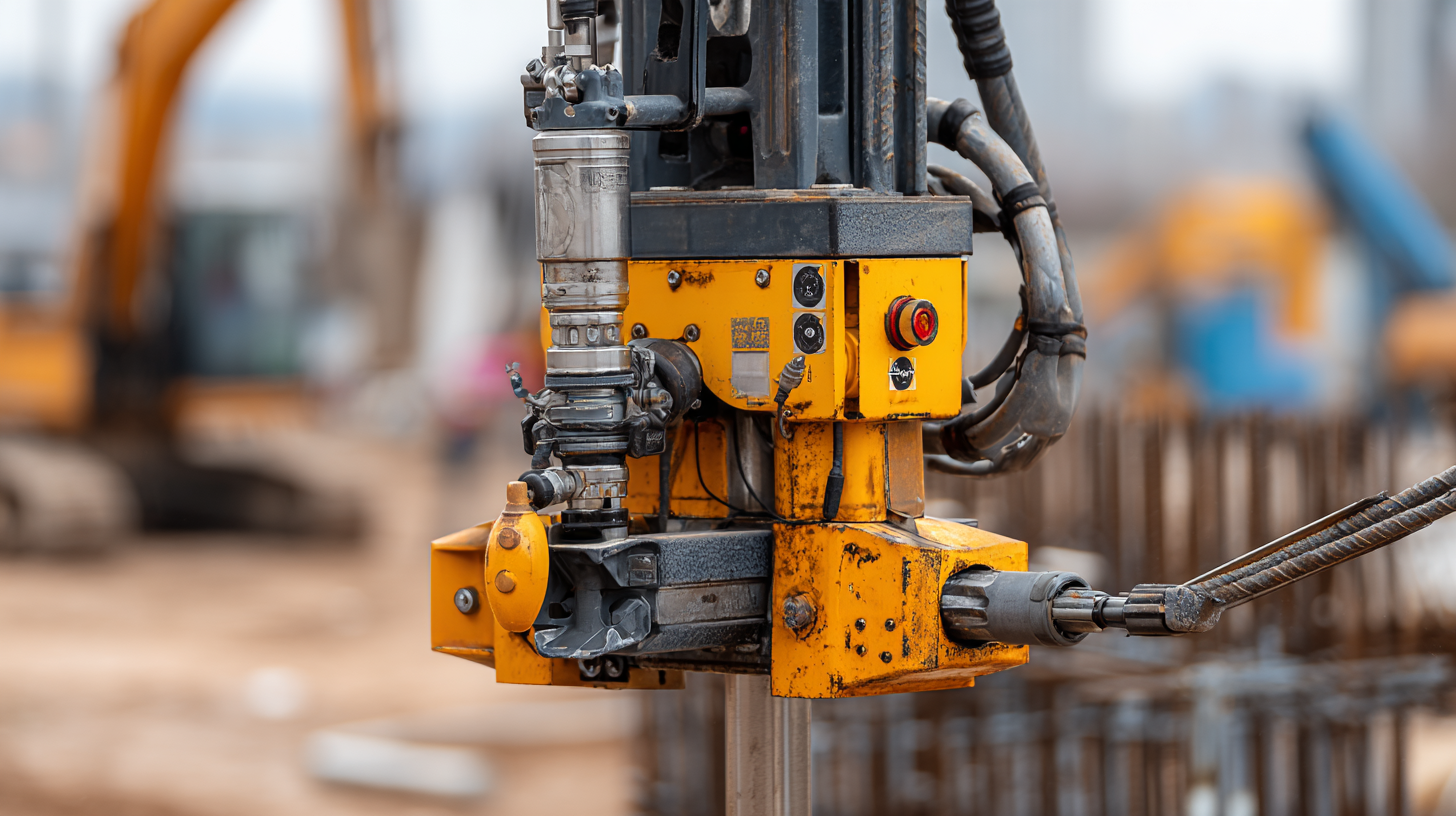
User Reviews and Feedback for Each Rebar Tying Machine
In 2023, the demand for automatic rebar tying machines has surged, driven by the construction industry's ongoing push for efficiency and precision. According to the Global Construction Machinery Market report, the automatic rebar tying machine market is projected to grow by 12% annually, reflecting a shift toward technological advancements that streamline construction processes. User feedback highlights the importance of choosing a reliable machine that balances performance with user-friendliness.
Reviews from operators frequently cite the ease of use and time-saving features of top models like the Tie Gun 2000 and the Rebar Tying Robot 3000. Many users commend the reduction in worker fatigue, particularly in large-scale projects where manual tying can be labor-intensive. A survey conducted by Construction Tech Insights revealed that 87% of users experienced a significant decrease in labor costs and increased project turnaround times after switching to automatic machines. Feedback also emphasizes the importance of lightweight designs for improved maneuverability without compromising on power, as users tackle demanding construction environments.
Future Trends in Rebar Tying Technology and Construction Efficiency
Recent innovations in automated construction technology are reshaping the industry, with a spotlight on rebar tying machines that enhance efficiency and workspace safety. Companies like Crest Robotics and Earthbuilt Technology are pioneering advanced solutions such as spider-like construction robots, streamlining traditionally labor-intensive tasks. As labor shortages become a pressing issue, the adoption of such technologies can alleviate workforce constraints and lead to a more efficient construction process.
Looking ahead, the building sector is poised for a significant transformation towards sustainability and intelligence. Initiatives for green construction are gaining traction, focusing on eco-friendly practices and harmonious coexistence with nature. Notably, projects like the expansive spherical shell structure in Huzhou exemplify the merging of innovative design with sustainable methods. The integration of robotics, particularly in tasks like rebar tying, underscores a broader shift towards automation, promising not only increased productivity but also a greener, smarter future for the construction industry.
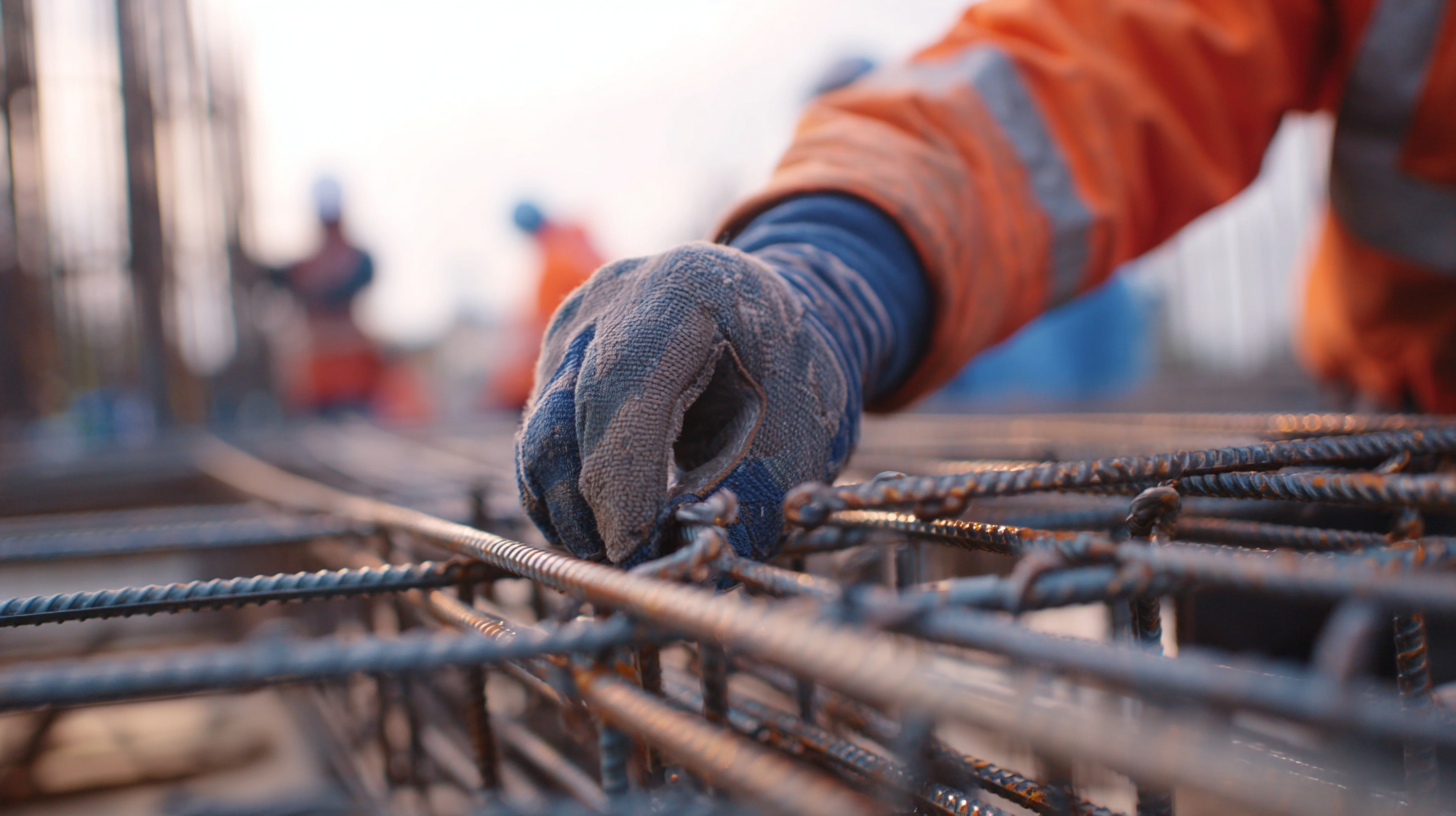
Related Posts
-
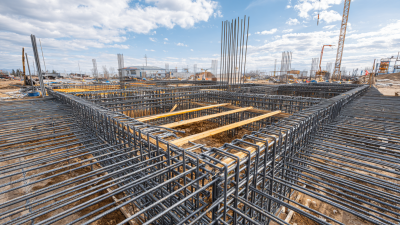
Maximizing Efficiency with the Latest Automatic Rebar Tying Tool Technology
-
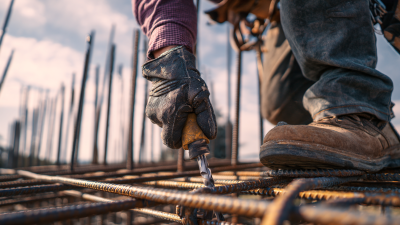
Revolutionizing Construction: How Stand Up Rebar Tying Tools Enhance Efficiency and Safety
-
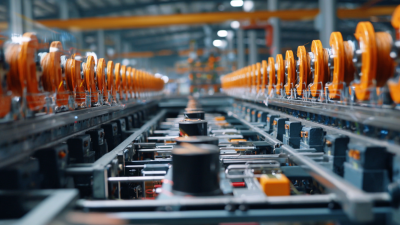
The Ultimate Guide to Boosting Construction Efficiency with a Stand Up Rebar Tying Machine
-
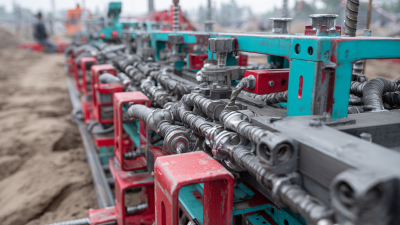
Revolutionizing Construction: How Electric Rebar Tying Machines Boost Productivity by 50% in Modern Projects
-
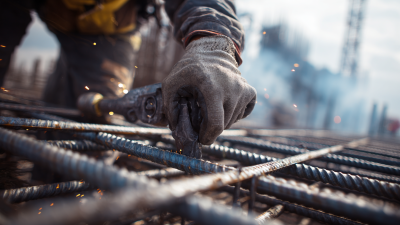
Max Rebar Tier: Revolutionizing Rebar Tying Efficiency with 30% Faster Workflows
-

Exploring the Benefits of Max Rebar Tie Wire Twintier for Efficient Construction Projects
